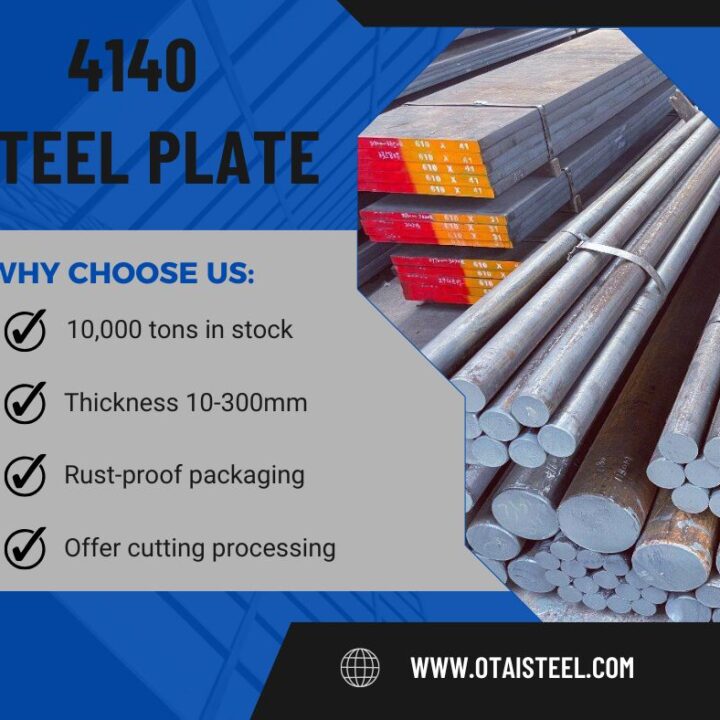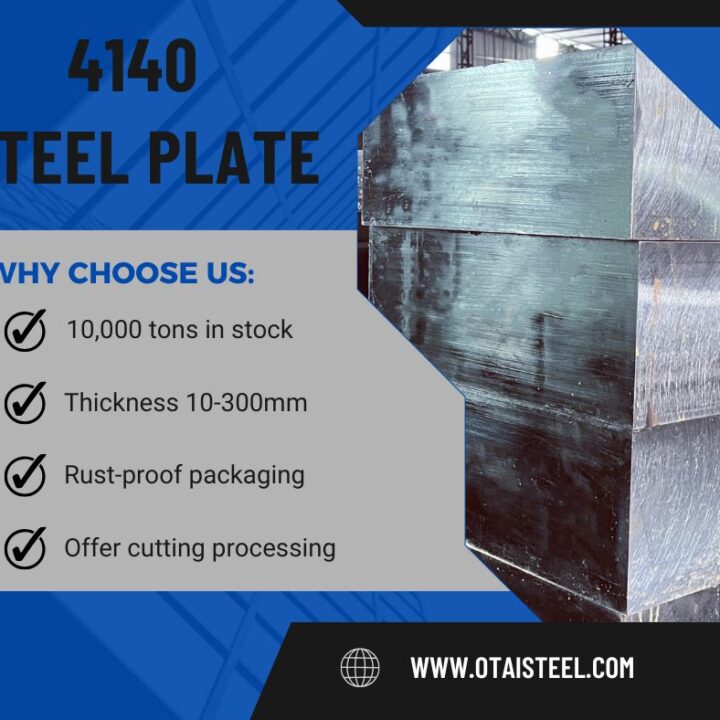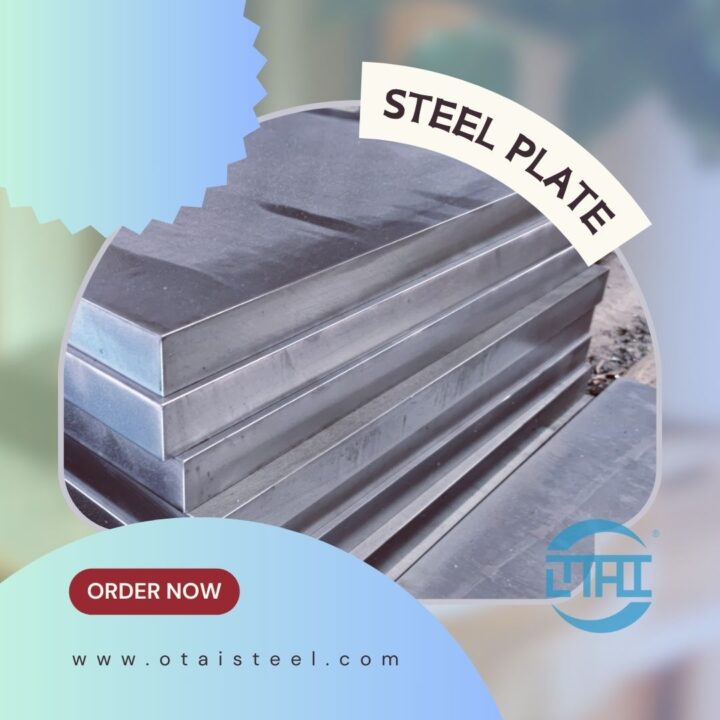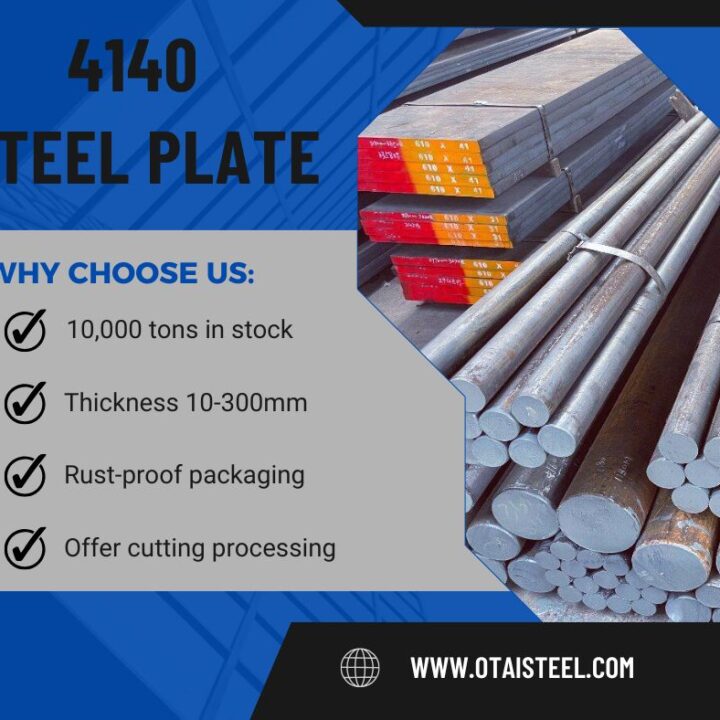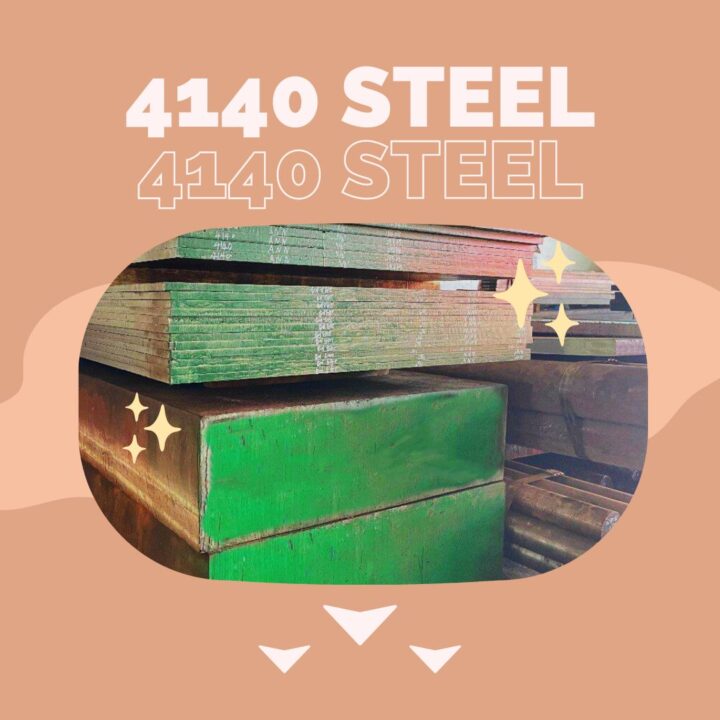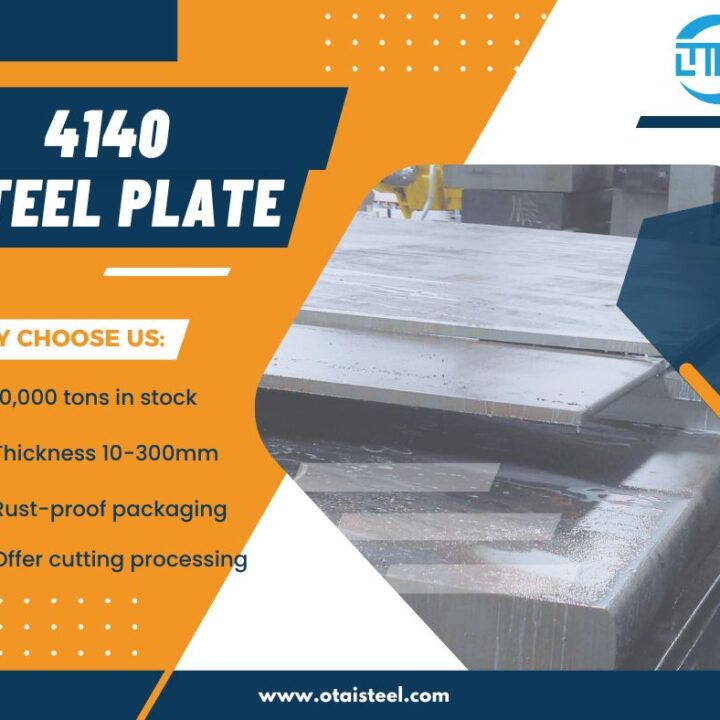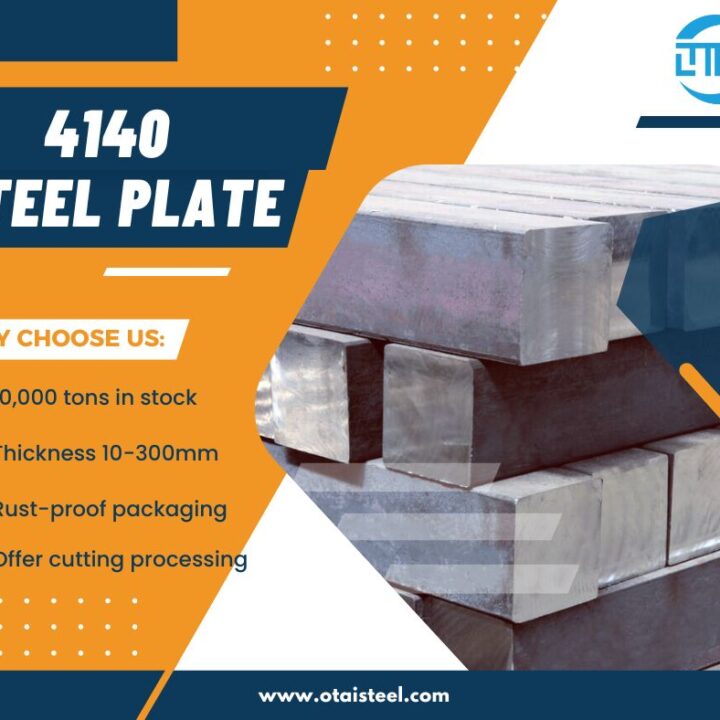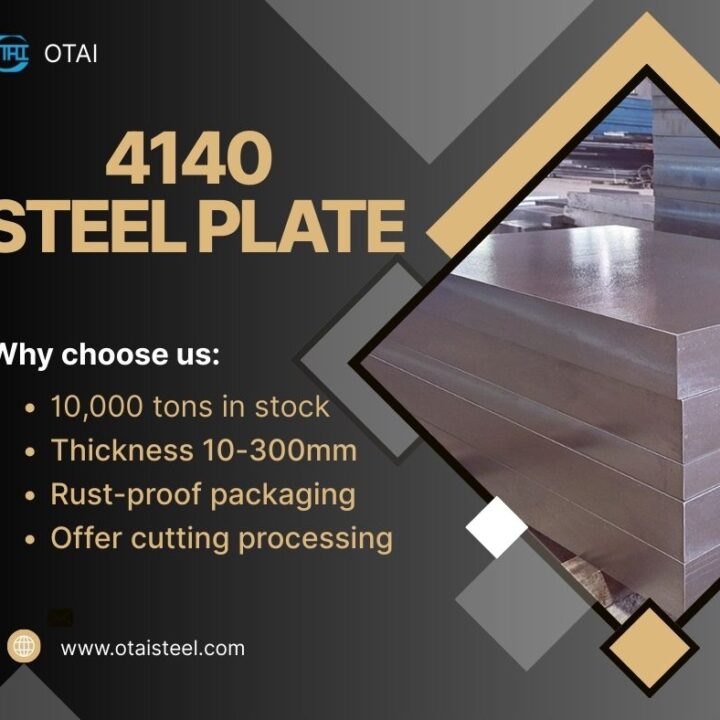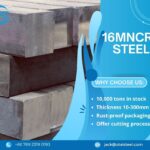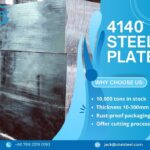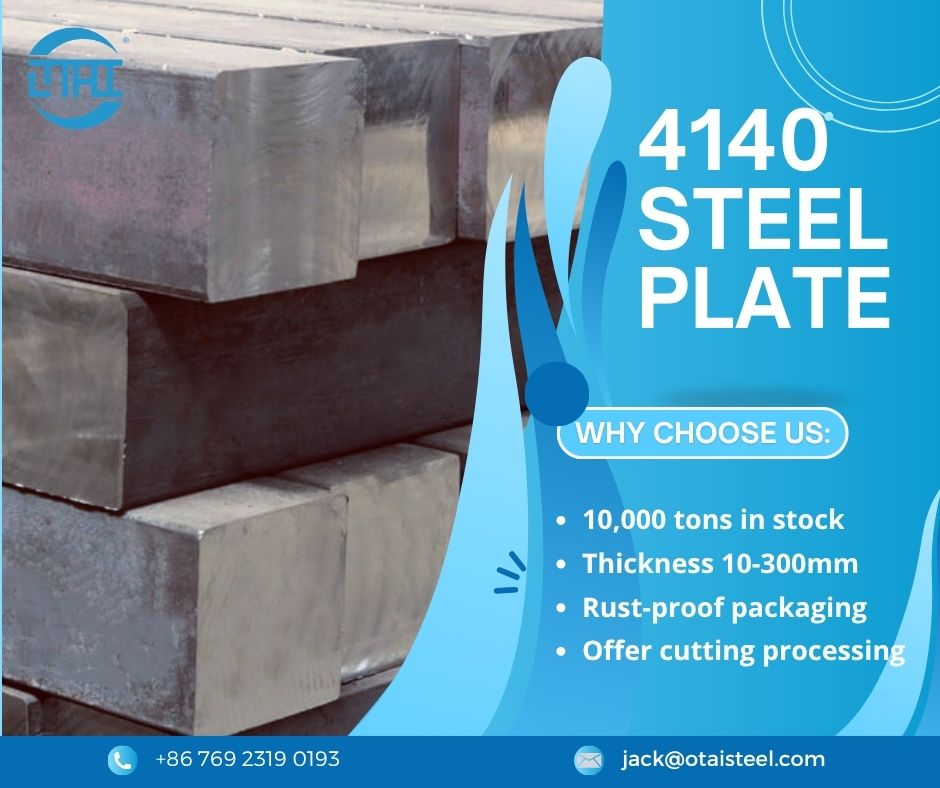 Steel 4140 Properties: Strength and Versatility in One Alloy
Steel 4140 Properties: Strength and Versatility in One Alloy
Steel 4140 is a high-quality chromium-molybdenum alloy steel widely used in industries requiring high strength, toughness, and versatility. Manufacturers use this steel in applications like automotive components, machinery, and tools. It offers impressive mechanical properties, making it a great choice for demanding environments.
In this article, we will examine the key properties of 4140 steel, its advantages, and its most common applications.
🧪 What is Steel 4140?
Steel 4140 is a medium-carbon alloy steel containing:
-
Carbon (C): 0.38% – 0.43%
-
Chromium (Cr): 0.80% – 1.10%
-
Molybdenum (Mo): 0.15% – 0.25%
These elements give 4140 steel excellent hardenability, strength, and resistance to wear. Typically, it undergoes quenching and tempering to optimize performance, especially for components exposed to high stress and heavy loads.
🧬 Key Properties of Steel 4140
Steel 4140 offers several key mechanical properties, which make it suitable for a wide range of demanding applications:
| Property | 4140 Steel |
|---|---|
| Tensile Strength | 850 – 1,050 MPa (varies with heat treatment) |
| Yield Strength | 655 – 850 MPa (varies with heat treatment) |
| Hardness | 28 – 32 HRC (varies with heat treatment) |
| Impact Toughness | High resistance to impact and shock loading |
| Machinability | Good machinability in annealed condition |
| Weldability | Fair to good (preheating may be necessary) |
🏗️ Applications of Steel 4140
Thanks to its combination of strength, toughness, and wear resistance, 4140 steel plays a key role in various industries. Here are some of its most common uses:
1. Automotive Industry
Manufacturers rely on 4140 steel for automotive components like gears, crankshafts, axles, and spindles. These parts must withstand extreme stress and high impact, and 4140 steel delivers the necessary performance.
2. Machinery and Equipment
4140 steel excels in the manufacture of shafts, pins, gears, and bearings used in machinery and equipment. These parts face heavy mechanical forces and require materials with excellent impact resistance and wear resistance.
3. Tooling and Dies
Due to its hardness and strength, 4140 steel serves as an ideal material for making cutting tools, dies, and jigs. These tools face high abrasion and need to maintain their sharpness and durability over time.
4. Heavy Equipment and Construction
In the construction and heavy machinery sectors, 4140 steel proves essential for components like cranes, excavators, and drill rods. The material’s high strength and resilience ensure that these parts can endure challenging environments.
🔧 How is Steel 4140 Processed?
To achieve its desired mechanical properties, 4140 steel undergoes several processing techniques:
1. Heat Treatment
Manufacturers commonly heat treat 4140 steel to improve its hardness and strength. Quenching and tempering are the most common heat treatment methods used to enhance the material’s properties for high-stress applications.
2. Machining
4140 steel is easy to machine when in its annealed state. Milling, turning, and drilling are common machining processes. However, once heat-treated, it becomes harder and may require special tools to maintain efficiency during machining.
3. Welding
4140 steel is weldable, though it may require preheating for thicker sections to reduce the risk of cracking. Proper heat control is essential when welding 4140 steel to maintain its mechanical properties.
🛡️ Advantages of Steel 4140
1. High Strength and Toughness
The primary advantage of 4140 steel is its exceptional strength and toughness, making it ideal for components like gears, shafts, and spindles that must endure heavy mechanical stress.
2. Excellent Wear Resistance
The addition of chromium and molybdenum to 4140 steel provides excellent wear resistance. This makes it a preferred material for components exposed to constant abrasion and friction.
3. Versatility
4140 steel offers versatility in terms of strength, ductility, and hardness, allowing it to be used in a wide variety of applications, including automotive and heavy machinery industries.
4. Heat Treatable
The ability to heat treat 4140 steel gives manufacturers the flexibility to tailor its properties for specific needs, whether they need to enhance hardness or improve toughness.
💰 Cost of Steel 4140
While 4140 steel costs more than carbon steel, its superior strength, wear resistance, and versatility often make it a more cost-effective choice for demanding applications. For those in need of 4140 steel, Otai Special Steel offers high-quality material at competitive prices.
🏅 Why Choose Otai Special Steel for Your 4140 Steel Needs?
At Otai Special Steel, we offer a broad range of 4140 steel products, available in various sizes and thicknesses. Additionally, we provide custom cutting, heat treatment, and other specialized services to meet your needs.
Here are some reasons to choose Otai Special Steel:
| Benefit | Details |
|---|---|
| Extensive Inventory | We keep a large stock of 4140 steel in a variety of sizes and thicknesses. |
| Custom Solutions | We offer custom cutting, heat treatment, and tailored services. |
| Global Shipping | We provide fast and reliable shipping worldwide. |
| Quality Assurance | Our 4140 steel undergoes strict quality control to meet the highest standards. |
❓ FAQ: Frequently Asked Questions About Steel 4140
Q1: Is 4140 steel weldable?
A1: Yes, 4140 steel is weldable, though it requires preheating for thicker sections to prevent cracking.
Q2: How does 4140 steel compare to other alloy steels?
A2: 4140 steel offers better strength and wear resistance than many carbon steels, but it is less resistant to corrosion than stainless steel.
Q3: What heat treatment is ideal for 4140 steel?
A3: Quenching and tempering provide the best balance of strength and toughness for 4140 steel.

